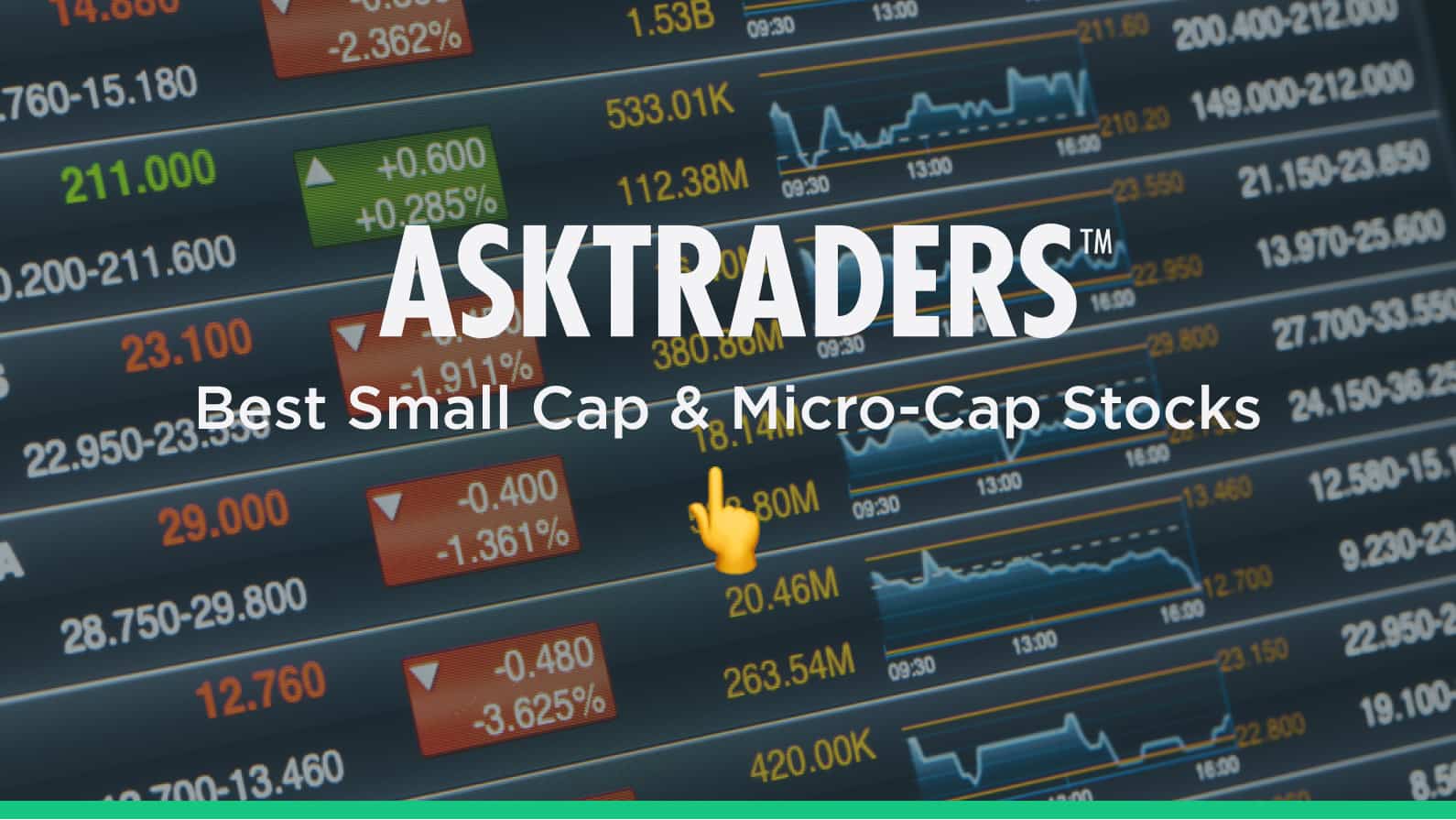The UK small-cap and micro-cap markets offer a wealth of investment opportunities for those seeking high growth potential. Small-cap stocks are companies with a market valuation that ranges from $300m to $2bn. Micro-cap stocks are companies with a valuation that ranges from $50m to $300m.
YOUR CAPITAL IS AT RISK

Many of the small-cap and micro-cap stocks are less well-known, which can lead to greater volatility but also the potential for higher returns. Many of these companies are in this category due to their share prices falling a great deal over the past few years, but there is always the possibility of a quick recovery.
If you're looking into investing in small-cap or micro-cap stocks, it's essential to conduct thorough research and understand the risks involved, as smaller-cap stocks are generally more volatile than their large-cap counterparts and may be more likely to be affected by negative news or events. However, for those who are willing to take on increased risk, small-cap and micro-cap stocks can offer the potential for significant rewards.
| Company | Industry | 2022 Revenue |
|---|---|---|
| Shoe Zone | Retail | £156.2m |
| Liontrust Asset Management | Financial Services | |
| Card Factory | Retail | £463.4 million |
| Marston's | Restaurants and bars | £799.6m |
| Asos | Retail | £3.5bn |
How We Chose These Stocks
Each one of the stocks chosen has the ability to grow its market capitalisation, while a couple, including Asos, have previously had much larger market capitalisations. In fact, Asos’s market cap in 2017 stood at almost $7.7 billion. The companies included are also well-known names in their industries that have a track history of solid performance over the years, navigating periods of economic uncertainty and performing well during boom years.
Table of contents
Shoe Zone (LON: SHOE)
Shoe Zone is focused on delivering low-cost footwear to the public in the UK. It operates over 500 stores across its marketplace. When times are tough and inflation is rising, firms in the low-cost niche tend to perform well, as we have seen with this stock over the last year or two.
Shoe Zone has been keen on running a tight ship, has kept costs in line, and pushed revenues higher. If there is a potential risk here, it could come from competition, and there is always the possibility that investors have inflated prices.
YOUR CAPITAL IS AT RISK
Liontrust Asset Management PLC (LON: LION)
Liontrust Asset Management is a British asset management business that is a constituent of the FTSE 250 Index. The London-based investment manager has a solid track record of performance and has grown its Assets Under Management and Administration (AuMA) from £1.3 billion at the end of the 2010/11 financial year to £31.4 billion on 31 March 2023.
The company’s funds management invest in global equities, global fixed income, sustainable investment and multi-asset portfolios and funds.
YOUR CAPITAL IS AT RISK
Card Factory (LON: CARD)
Card Factory is a UK-based specialist retailer of greeting cards, dressings, and gifts. It has a significant presence with over 1,000 stores, while it also has a strong online presence.
The company’s revenue has grown strongly over the years and it continues to build out its high street presence across the UK. Card Factory’s growth has been driven by several factors, including its strong “value and quality proposition,” its wide range of products, and its convenient locations.
Card Factory is well-positioned in the coming years, with its finances looking solid. The company is also continuing to invest in its online shopping channel.
YOUR CAPITAL IS AT RISK
Marston's (LON: MARS)
Marston’s is a popular British pub chain, that operates around 1,500 pubs and bars. The company’s revenues took a hit due to the COVID-19 lockdown measures imposed in the UK and its share price has continued to struggle, with other factors, such as rising costs also impacting the business.
Despite the struggles, MARS remains positive, noting in a recent earnings update that operating profit should improve beyond its initial expectations in the current financial year. The company has also been working on reducing its debt pile.
YOUR CAPITAL IS AT RISK
Asos (LON: ASC)
Back in 2018, Asos’s share price hit 7,770p per share, with its market cap during the year significantly above the level to be considered a small-cap stock. Fast forward a few years, and the company’s share price now trades well below the 400/500p mark, and its market cap is now in small-cap stock territory.
The online fashion retailer has been impacted by consumer headwinds such as inflation and rising rates, as well as growing competition from online clothing companies that sell their products at a cheaper price point. However, Asos is working on its turnaround, and the stock could be one for investors who believe Asos’s current management has the ability to navigate the ship through the current choppy waters.
YOUR CAPITAL IS AT RISK
Why Invest In Small and Micro-Cap Companies?
While all investment is inherently risky, taking positions in small and micro-cap may be seen as riskier. However, with increased risk comes the potential for even greater rewards, although investors should always be aware that nothing is guaranteed.
While some companies in the category are small and growing, offering investors the chance to get in on a potential long-term riser, others may have already hit dizzying heights, and therefore, investors will be betting on a potential turnaround. Some investors may describe it as bargain hunting, allowing them to get in at rock-bottom prices and hopefully watch the stock turnaround. Either way, it is vital to conduct thorough research.
What to Know Before Investing in Small-Cap Companies
High-risk, High potential returns: Like others globally, UK small-cap and micro-cap stocks are generally considered to be riskier than large-cap stocks as they are often less well-known and have more volatile share prices. However, they also have the potential to generate higher returns. Over the long term, small-cap stocks have outperformed large-cap stocks.
Limited liquidity: In some instances, mainly with micro-cap stocks, stocks that have a smaller market capitalisation can be difficult to buy and sell because there is less trading activity. This means that you may have to pay a higher price than you would like to buy a stock, and you may have to accept a lower price than you would like to sell.
More research required: Given the nature of smaller cap companies, there is usually less information about them available, while investment bank analysts may also not be covering them. As a result, you may need to do more research before investing in them. This means reading company filings, listening to analyst reports (if available), and being aware of industry news.
Profitability: Most small-cap stocks might not be profitable as they are still building their business, which means that you are unlikely to get any dividend payments. Even when there are profits at this stage in the company’s evolution, it will more than likely invest those funds back into the business. Also, try to invest only in companies whose business model you understand, as this will help you manage your investments better.











